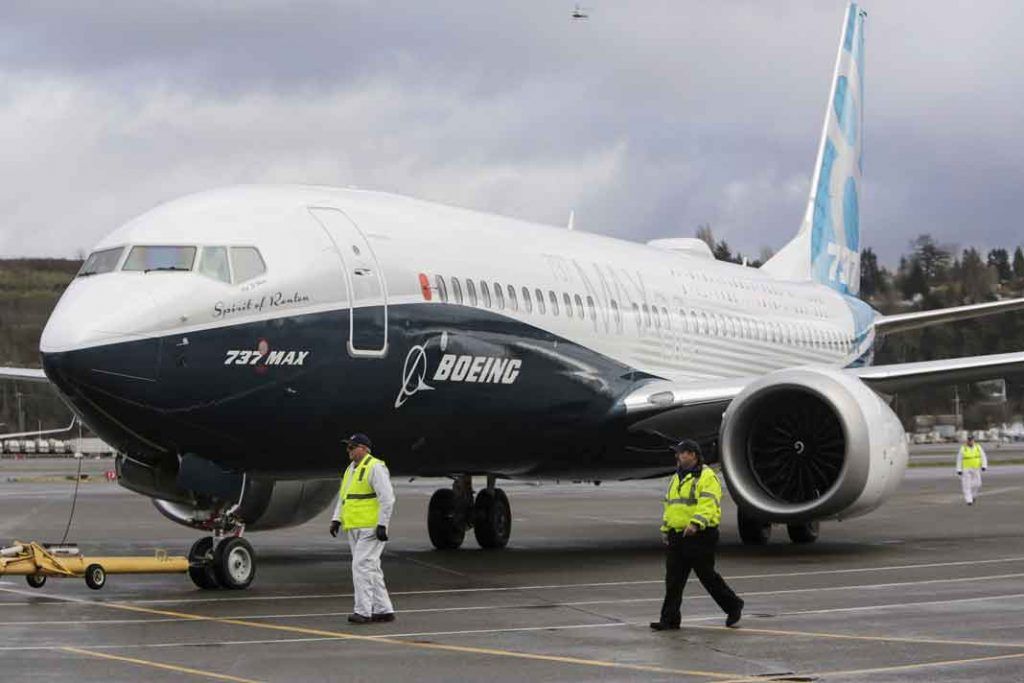April 04, 2017
By Babak Dehghanpisheh and Tim Hepher
DUBAI/PARIS (Reuters) – Iran’s Aseman Airlines has signed a tentative deal to buy at least 30 Boeing 737 MAX jets, in the first new business with the U.S. planemaker since President Donald Trump took office vowing to take a tougher stance towards Iran.
Owned by Iran’s civil service pension foundation but managed as a private company, Aseman isIran’s third-largest airline by active fleet size, according to the CAPA consultancy.

Iran’s official Islamic Republic News Agency said on Tuesday representatives of Aseman and Boeing had signed an agreement in Tehran covering as many as 60 jets, including options, after a year of negotiations.
Boeing described the deal as a “memorandum of agreement,” meaning it is only outline for the time being and subject to government approvals. It covers plans for Aseman to buy 30 aircraft with options for a further 30, it added.
If completed, the main part of the deal for 30 jets would be worth $3.4 billion at list prices, though airlines typically pay around half that.
Boeing has already agreed to sell 80 aircraft to flag carrier IranAir under a deal between Tehran and major powers that led to the lifting of most sanctions in return for curbs on its nuclear technology development activities.
Trump has said he opposes the nuclear sanctions pact, but has not stated a public view on the aircraft deals reached under the accord, which the U.S. aerospace industry says would support his agenda for protecting U.S. manufacturing jobs.
Washington last month imposed separate sanctions on 25 Iranian individuals and entities following a ballistic missile test. Iran retaliated with its own sanctions.
In a statement on the Aseman deal, Boeing cited U.S. Department of Commerce data suggesting an “aerospace sale of this magnitude creates or sustains approximately 18,000 jobs in the United States”.
TURBOPROP TALKS
Boeing deliveries to Aseman would start in 2022, although the U.S. planemaker must first apply for licences from the U.S. Treasury allowing it to proceed with the sale.
“Boeing continues to follow the lead of the U.S. government with regards to working with Iran’s airlines and any and all contracts with Iran’s airlines are contingent upon U.S. government approval,” it said.
In December the European Union banned Aseman from flying to the EU due to safety concerns, highlighting gaps in Iran’s ageing fleet following decades of sanctions.
The latest deal comes as Iranian President Hassan Rouhani’s government strives to highlight improvements resulting from the nuclear pact in the run-up to May presidential elections. So farIranAir has received three new Airbus jets under the deal.
Rouhani is likely to run a campaign highlighting economic benefits of the nuclear deal, which opened Iran to foreign investment. But Supreme Leader Ayatollah Ali Khamenei has said Rouhani must do more to improve the economy.
Negotiators from European turboprop maker ATR were meanwhile due in Tehran to wrap up a deal to sell 20 aircraft to IranAir, industry sources said. The first aircraft has been sitting on the tarmac in Toulouse, France, for weeks, waiting for the talks to be completed.
A deal for the airframes has already been reached but there has been uncertainty over the status of a separate deal needed for the engines, to be supplied by Pratt & Whitney Canada.
The company is a subsidiary of United Technologies, one of a handful of aerospace and defence groups covered by last month’s retaliatory sanctions by Tehran against U.S. firms, though Iran has not explicitly targeted civil aircraft engines.
Iranian officials have told Reuters finalising the ATR deal depends on getting a contract for engine spares and long-term maintenance of the engines once the planes are delivered.

